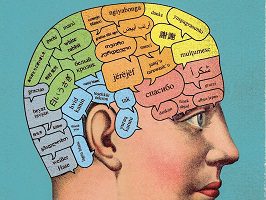Cognitive Psychology theories and authors with explanation
Cognitive
The word cognitive comes from the Latin cognoscere, which means knowing. Thus, both cognitive psychology and cognitive processes refer to the ability to know through the senses and the reason that all individuals possess. Cognitive Psychology theories and authors
The term cognitive is used to refer to everything that is related to cognition. Cognition is the set of processes and mechanisms that allow the individual to process certain information, either through the senses or the experience, although both are usually required.
Cognitive psychology
Cognitive psychology is the branch of psychology that is dedicated to the study of mental processes such as perception, planning, or the extraction of inferences. In other words, processes that have historically been understood as private and outside the scope of the measurement instruments that have been used in scientific studies.
Cognitivism and cognitive psychology have been a blow to the table by a community of researchers that did not want to give up the scientific study of mental processes, and since approximately the 1960s they have formed the hegemonic current of psychology throughout the world.
Cognitive psychology and the computational metaphor
If in the first half of the 20th century the dominant schools in the world of psychology were psychodynamics initiated by Sigmund Freud and the behaviorist, from the 1950s the world of scientific research began to experience a time of accelerated changes caused by the irruption of progress in the construction of computers.
From that moment it began to be possible to understand the human mind as an information processor comparable to any computer, with its data input and output ports, parts dedicated to storing data (memory), and certain computer programs in charge of processing the data. information appropriately. This computational metaphor would serve to create theoretical models that allow hypotheses and attempts to predict human behavior to a certain extent. Thus was born the computer model of mental processes, widely used in psychology today. Cognitive Psychology theories and authors
The cognitive revolution
At the same time that technological advances in the field of computing occurred, behaviorism was being increasingly criticized. These criticisms were focused, basically, because it was understood that its limitations did not allow an adequate study of mental processes, by limiting itself to drawing conclusions about what is directly observable and what has a clear impact on the environment: behavior. Cognitive Psychology theories and authors
Thus, during the 1950s a movement arose in favor of a reorientation of psychology towards mental processes. This initiative included, among others, followers of the ancient Gestalt psychology, memory and learning researchers interested in the cognitive, and some people who had been distancing themselves from behaviorism and, especially, Jerome Bruner and George Miller, who spearheaded the cognitive revolution. Cognitive Psychology theories and authors
It is considered that cognitive psychology was born as a result of this stage of claims in favor of the study of mental processes when Jerome Bruner and George Miller founded the Center for Cognitive Studies at Harvard in 1960. Shortly later, in 1967, the psychologist Ulric Neisser provides a definition of what cognitive psychology is in his book Cognitive psychology. In this work, he explains the concept of cognition in computational terms, as a process in which information is processed in order to be able to use it later. Cognitive Psychology theories and authors
The reorientation of psychology
The irruption of cognitive psychology and the cognitivist paradigm supposed a radical change in the object of study of psychology. If for the radical behaviorism of BF Skinner what psychology should study was the association between stimuli and responses that can be learned or modified through experience, cognitive psychologists began to hypothesize about internal states that allowed to explain memory, attention, perception, and countless topics that until then had only been timidly touched by Gestalt psychologists and some researchers from the late nineteenth and early twentieth centuries.
The methodology of cognitive psychology, which inherited many things from behaviorism, consisted of making assumptions about the functioning of mental processes, making inferences from these assumptions, and testing what is assumed by scientific studies, to see if the results fit the assumptions from which they are based. The idea is that the accumulation of studies about mental processes would outline how the human mind could work and how it does not work, this being the engine of scientific progress in the field of cognitive psychology.
Criticisms of this conception of the mind
Cognitive psychology has been strongly criticized by psychologists and researchers associated with the behaviorist current. The reason is that, according to his perspective, there is no reason to consider that mental processes are something other than behavior as if they were fixed elements that remain inside people and that are relatively separate from what happens to them. Around us.
Thus, cognitive psychology is seen as a mentalistic perspective that, either through dualism or through metaphysical materialism, confuses the concepts that are supposed to help understand behavior, with the object of study itself. For example, religiosity is understood as a set of beliefs that remain within the person, and not a disposition to react in certain ways to certain stimuli.
As a result, the current heirs of behaviorism consider that the cognitive revolution, instead of providing weighty arguments against behaviorism, limited itself to showing that it had refuted it , putting one’s own interests ahead of scientific reasoning and dealing with attributions made about what may be happening in the brain as if it were the psychological phenomenon to be studied, instead of the behavior itself.
Cognitive psychology today
Currently, cognitive psychology continues to be a very important part of psychology, both in research and in intervention and therapy. Its progress has been helped by discoveries in the field of neuroscience and the improvement of technologies that allow the brain to be scanned to obtain images of its activation patterns, such as fMRI, which provides extra data about what happens in the head of human beings and allows to “triangulate” the information obtained in the studies.
However, it should be noted that neither the cognitivist paradigm nor, by extension, cognitive psychology is free from criticism. Research carried out within cognitive psychology rests on several assumptions that do not have to be true, such as the idea that mental processes are something other than behavior and that the former causes the latter. For something is that even today, there is behaviorism (or a direct descendant of it, rather, and not only has it not been fully assimilated by the cognitive school but also harshly criticizes it. Cognitive Psychology theories and authors

